Are you looking to streamline the process of applying for a language proficiency waiver? Understanding the nuances of crafting a compelling letter can make all the difference in your application. In this article, we'll explore key elements to include in your letter, ensuring it resonates with the reviewing committee. Ready to make your case? Let's dive in together!

Applicant's personal information
An applicant's personal information is crucial when seeking a language proficiency waiver. Full name (first, middle, last) is essential for identification purposes. Contact details, including a valid email address and phone number, enable institutions to reach the applicant promptly. Date of birth (month, day, year) provides additional identification context. Additionally, the applicant's nationality (country of citizenship) and home address (street, city, postal code) are vital for demographic profiling and mailing necessary documents. Education background, such as the name of the institution attended and the degree obtained, offers insights into the applicant's qualifications. Relevant identification number (such as a student ID or passport number) further supports the waiver request process.
Explanation of language proficiency requirement
Language proficiency requirements often play a critical role in academic settings, ensuring that students can effectively communicate and engage in their studies. For instance, many institutions require proof of language proficiency in the primary language of instruction, such as English, to guarantee that students can excel in their courses. This requirement typically involves standardized tests like TOEFL (Test of English as a Foreign Language) or IELTS (International English Language Testing System), both designed to assess reading, writing, listening, and speaking skills. Institutions may consider alternative proficiency evidence, such as prior academic experience in an English-speaking environment or an academic history in a language recognized by the curriculum. Understanding this context is essential for students who may seek waivers based on previous education or unique circumstances, as it highlights institutional commitment to maintaining a supportive learning environment while ensuring effective communication standards are met.
Justification for waiver request
Language proficiency waivers can offer relief from demonstrating skills through standardized testing requirements for non-native speakers. Such waivers are often requested due to sufficient evidence of fluency, including academic qualifications from institutions in English-speaking regions, including the University of California system, extensive work experience in English-speaking environments, or prior active participation in English language programs. Important reasons might include having completed secondary education in countries such as Canada or the United Kingdom, or possessing a degree from an accredited university where English was the primary language of instruction. Providing supporting documentation like transcripts or work references citing English communication will strengthen the waiver request, underscoring the applicant's capability to thrive in an English-speaking academic or professional setting.
Supporting documents or evidence
Language proficiency waivers can be requested when individuals possess qualifications or experiences that demonstrate their language skills, such as passing a high-level course or acquiring a degree from an institution where instruction was conducted in the target language. Supporting documents may include transcripts from universities, certificates from language courses, or proof of employment where the language was primarily used, illustrating proficiency through real-world application. These documents should clearly indicate the relevant coursework, grades achieved, and duration of study to effectively substantiate the request for a waiver. Additionally, applicants may include a personal statement outlining their experiences and capability in using the language effectively in professional or educational settings.
Contact information for further communication
A language proficiency waiver can be requested by individuals seeking exemption from standardized language tests, such as IELTS or TOEFL, due to previous academic experiences conducted in English. Key elements include relevant contact information for institutions, including name, address, and email for seamless communication. Inclusion of specific details such as applicant name, student ID, and program of study, expedites the approval process. Providing a phone number ensures quick responses to any additional queries. Additionally, outlining rationale for the waiver, such as completion of secondary education or a degree in an English-speaking institution, enhances the request's credibility.
Letter Template For Language Proficiency Waiver Samples
Letter template of request for language proficiency waiver for academic admissions.
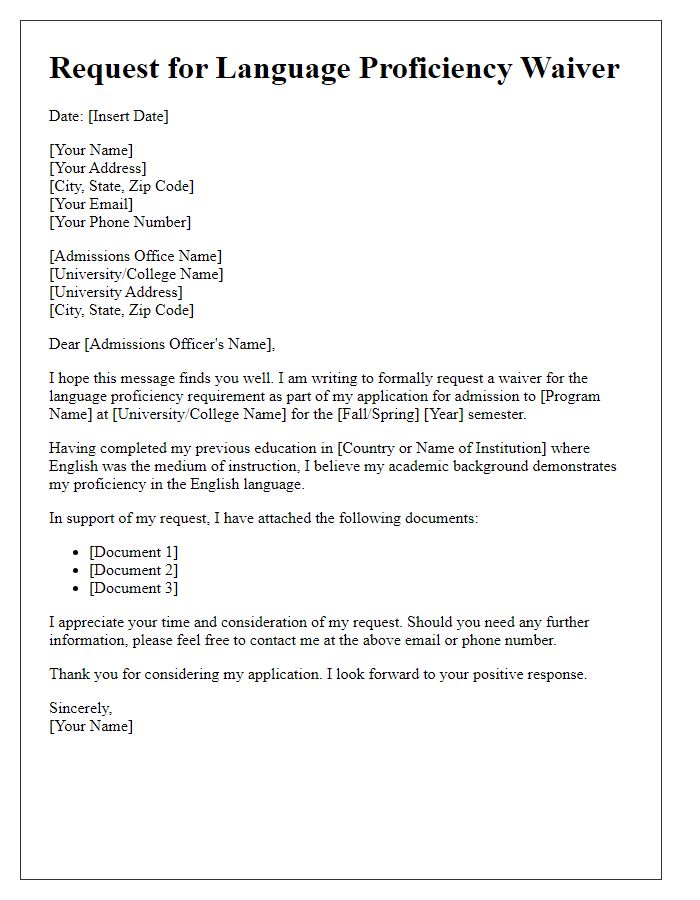
Letter template of appeal for language proficiency waiver for employment application.
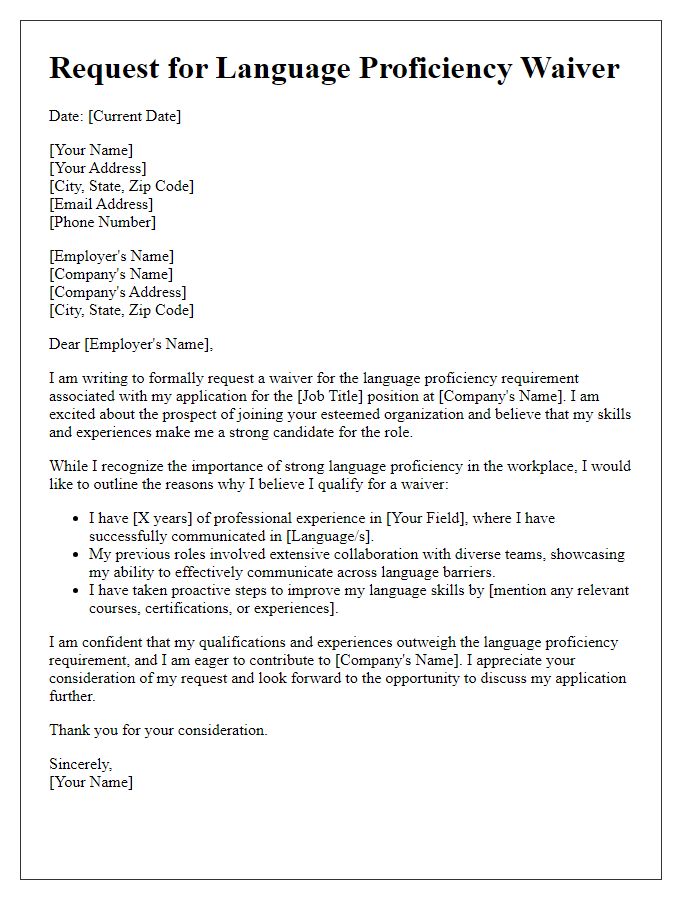
Letter template of justification for language proficiency waiver for scholarship consideration.
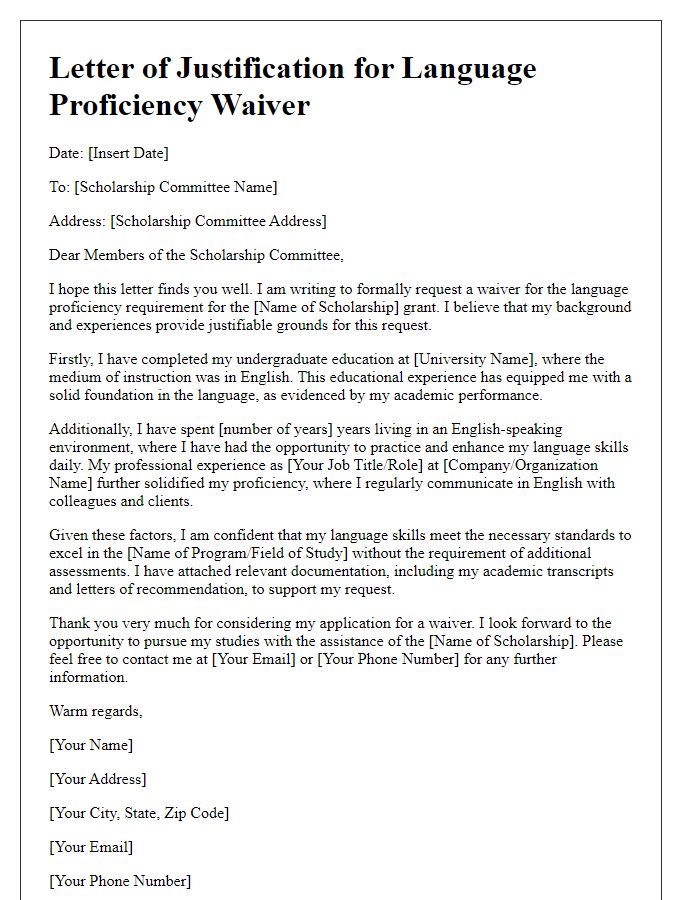
Letter template of application for language proficiency waiver for visa purposes.
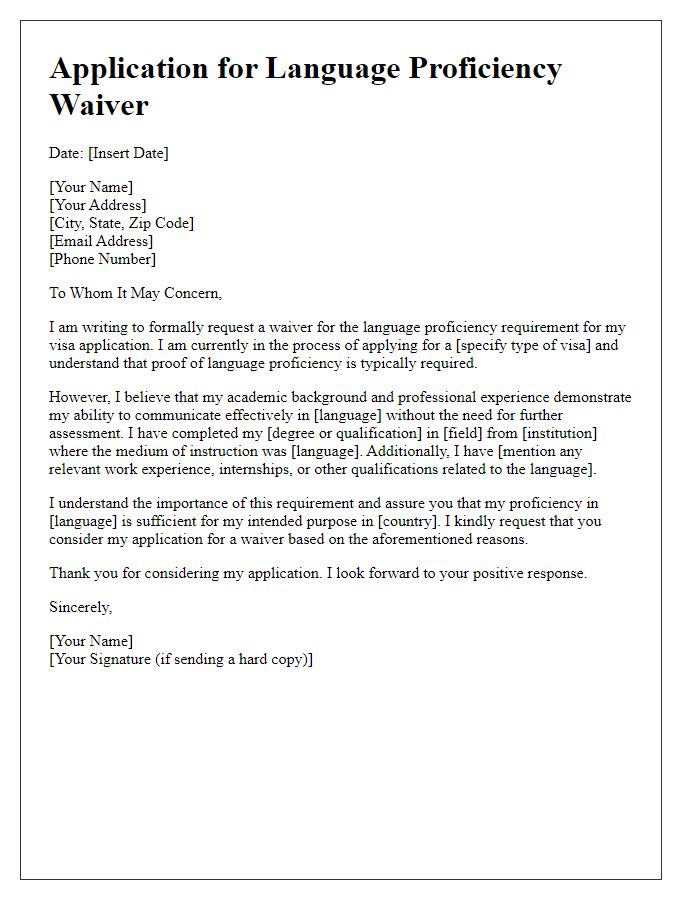
Letter template of inquiry about language proficiency waiver for professional licensing.
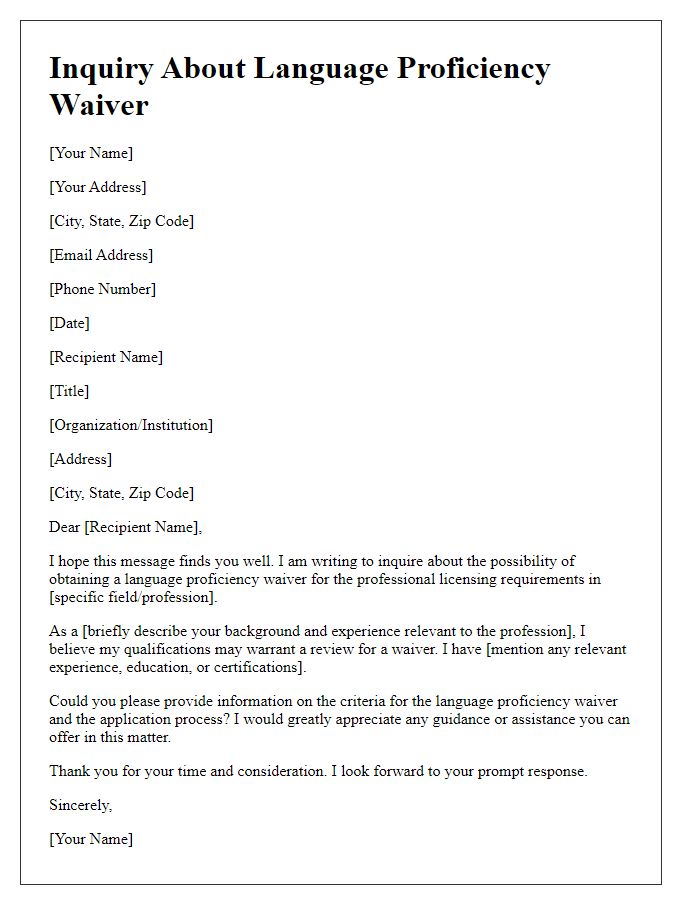
Letter template of recommendation for language proficiency waiver for study abroad program.
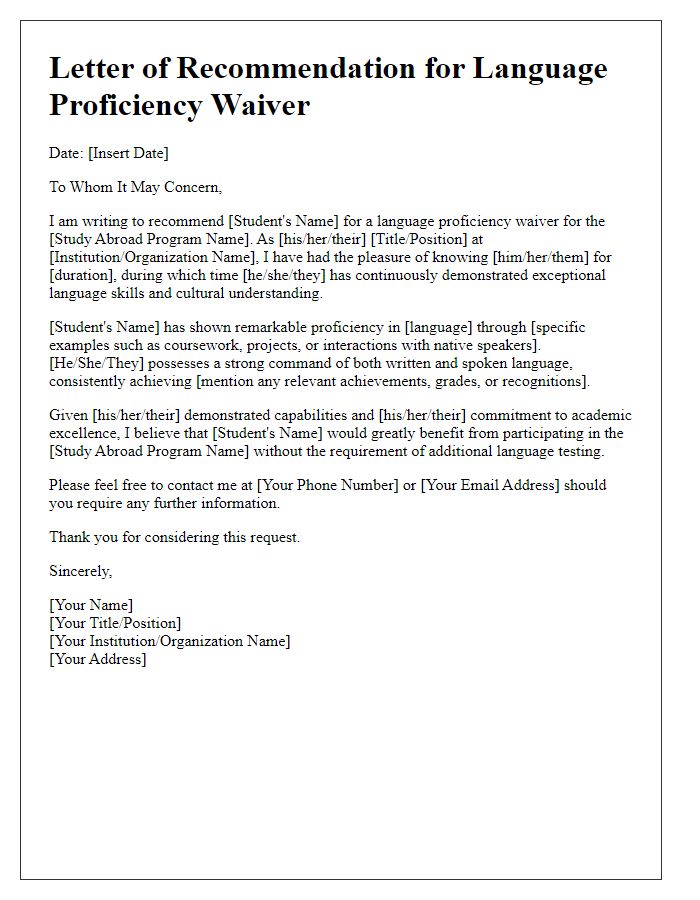
Letter template of support for language proficiency waiver for graduate school applications.
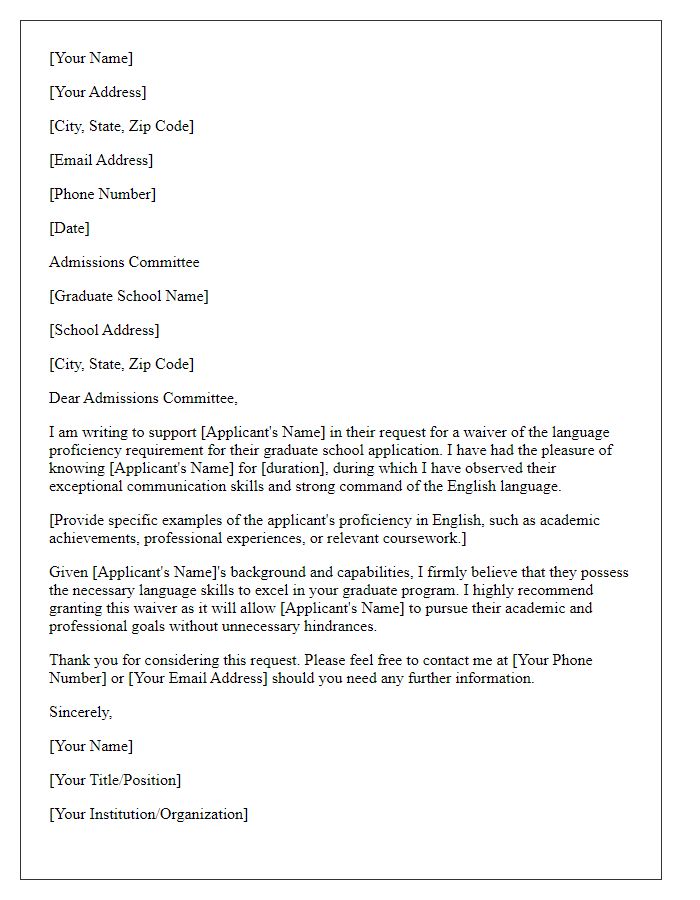
Letter template of declaration for language proficiency waiver for community service projects.
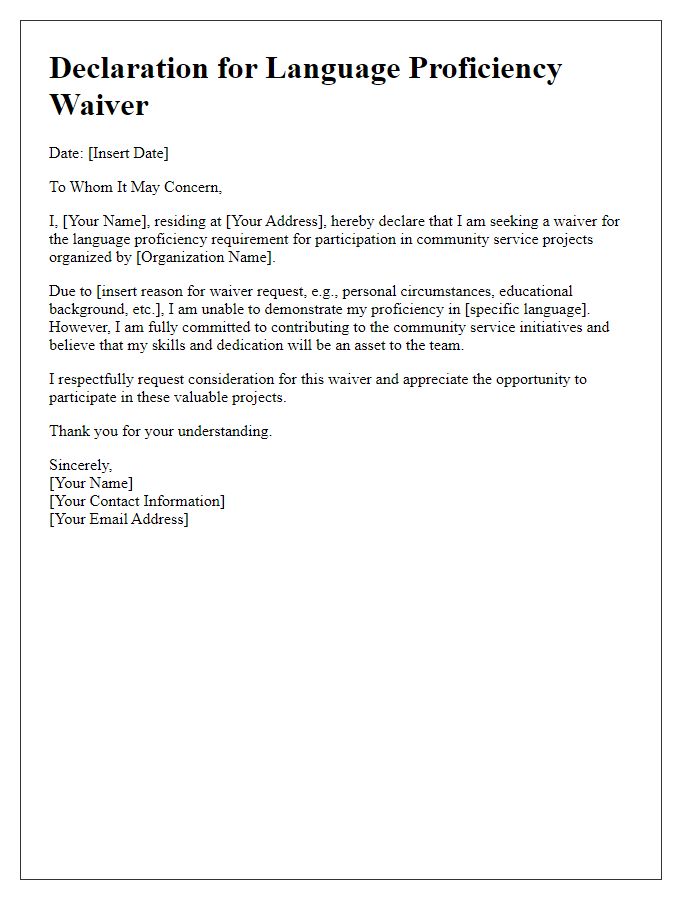
Letter template of endorsement for language proficiency waiver for internship opportunities.
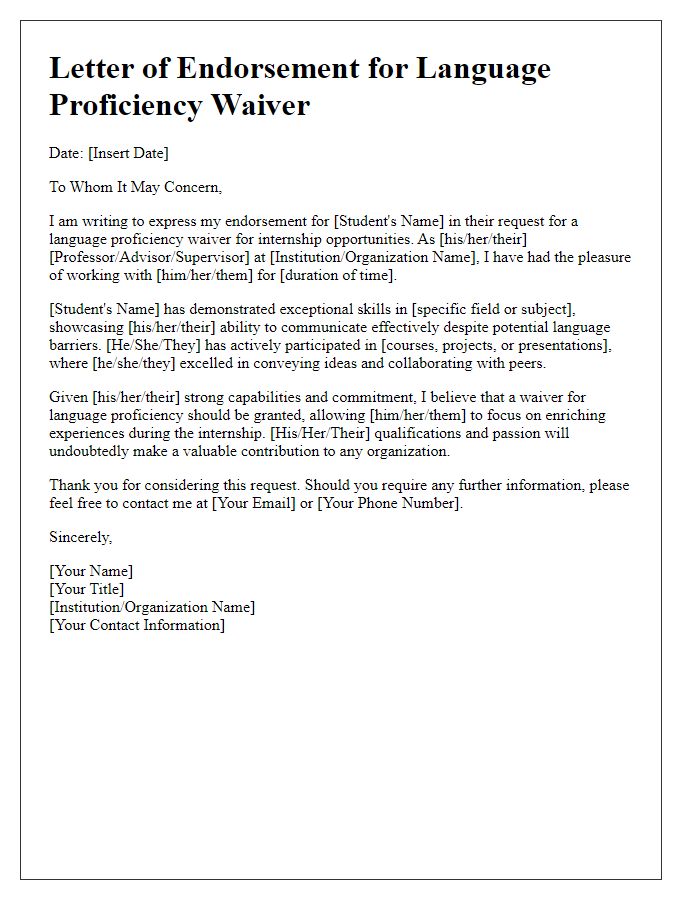

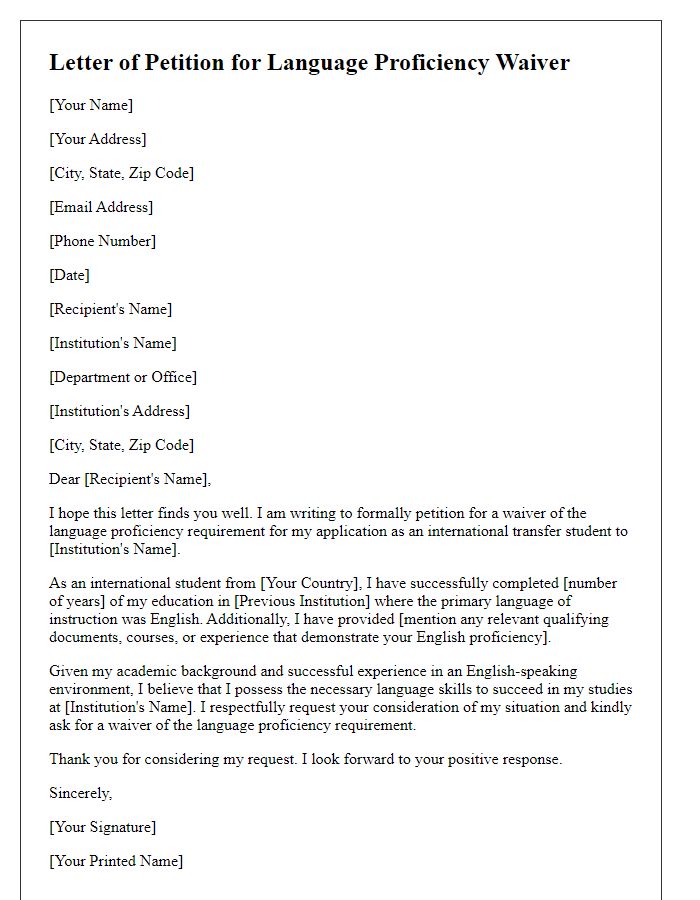


Comments